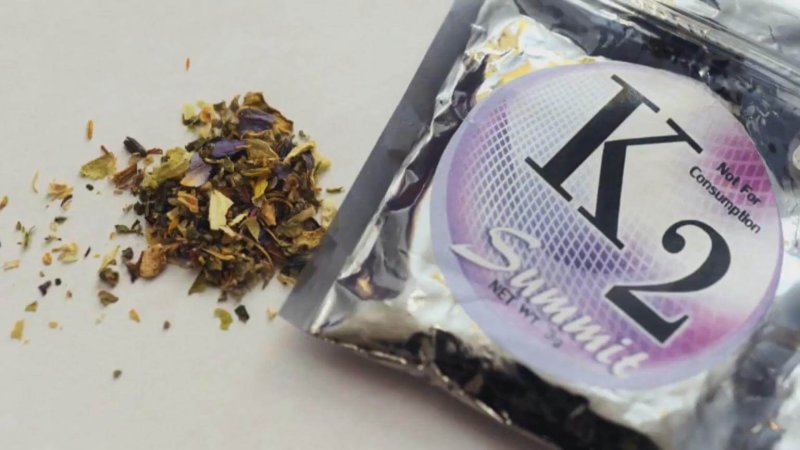…
In July, the FDA issued a statement warning about the unique dangers of these synthetic drugs.
The illicit substances are all lab-made cocktails of compounds that attach to cannabinoid receptors, which are the same ones in the brain that marijuana binds to. They’re usually sprayed onto plants and smoked. But despite the name and the method of consumption, these drugs are very different than leafy green cannabis, and can cause major health problems.
These synthetic drugs are often called the same thing—K2, Spice, or Black Mamba being among the most popular—but individual batches all contain different chemicals and aren’t regulated at all. As long as the chemical compound binds to a cannabinoid receptor, it’s likely to be packaged and sold as K2 without any sort of testing.
…
Additionally, the synthetic compounds are all far more potent than the cannabinoids in marijuana plants. If the cannabinoid receptors were a dial, the plant would consistently turn it up a few notches. The synthetic compounds, on the other hand, would spin it freely.
…
“This is a constantly changing landscape,” [toxicologist Andrew] Monte says. “Until we come up with a more robust surveillance network and substance abuse education platform, we’ll continue to have these outbreaks of severe illness.”
Read full, original post: K2’s deadly mystery: Nobody knows what’s actually in synthetic marijuana































